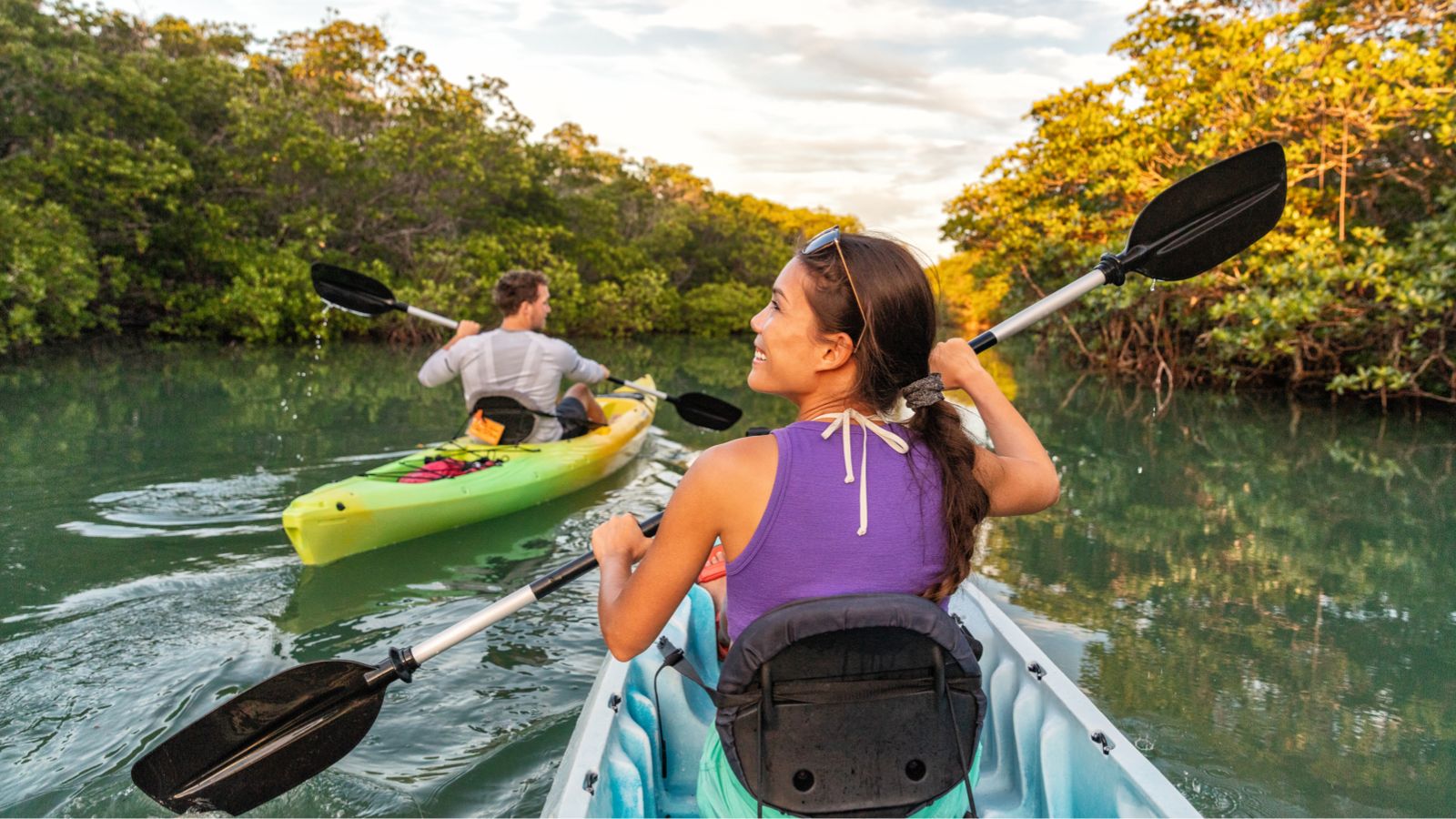As the U.S. is so vast, it means there are many different kinds of wildlife in the country, with each animal just as unique as the next. It’s important that we keep all species protected. Here are 17 reasons why wildlife is so important to the U.S.
Ecosystem Balance

The U.S. Climate Resilience Toolkit writes, “Human well-being is dependent on natural and managed ecosystems, which provide crucial functions and resources for nearly everything we eat, make, and do.” We need a stable ecosystem to prevent the loss of species and also because it affects the human race.
Source of Food

Humans have a historical reliance on animals for food. Wildlife is so important in the U.S. because of its connection with agriculture. Some of the wildlife may be hunted, or we may use animal products as a source of food. This isn’t just in the U.S.; wildlife affects diets globally.
Medicinal Resources

Many medicines come from wild plants and animals. With continued research on how wildlife and plants impact medicine, it can lead to more breakthroughs, which makes it incredibly important to sustain. We need well-functioning ecosystems to ensure we have clean air and fresh water to keep us healthy.
Disease Control

There’s a link between wildlife conservation and disease prevention. For example, many zoonotic diseases spread from animals to humans. Protecting the habitats of wild animals makes disease transmission less likely. They won’t be finding homes closer to humans because their habitats have been destroyed.
Economic Livelihood

Many economies in the U.S. depend on wildlife and nature. For example, Climate Action writes, “The economy is reliant on the ecosystem services that nature provides in many different ways. For example, ecosystem services provide wood for timber harvest; groundwater or fresh water for drinking, cooling power plants, or irrigation; and animal or plant fibers for fabrics or fertilizer.”
Cultural Heritage

Wildlife has a huge influence on cultural traditions and beliefs, especially among Indigenous people such as Native Americans. It can play a huge part in religious practices, with many people worshiping different animals. Wildlife conservation means the preservation of cultural identities and religions.
Tourism

Wildlife in the U.S. is a huge attraction for tourists. This means it can bring many economic benefits to the country. It’s created many recreational activities, as tourists choose outings focused on wildlife. For example, they take a boat ride in the Everglades to catch a glimpse of alligators.
Job Creation

Many jobs have been created through wildlife conservation and management in the United States. This can then have a bigger economic impact on conservation projects as more money is able to go into them. Many Americans prefer jobs in the conservation industry compared to more traditional roles, as it’s a great way to connect with nature and spend more time outdoors.
Mental Health and Well-being

There are so many psychological benefits that come from nature. Nature therapy can help with mental health, with many doctors recommending spending time outdoors for those who suffer from depression and anxiety. Having access to green spaces and cleaner air has so many health benefits.
Educational Value

Wildlife has so much educational value and it’s important to teach people about it from a young age. This is backed by Black Snake Productions, which writes, “By teaching children that every animal, all nature and all people have the right to life, we instill a respect for and appreciation for nature.”
Climate Regulation

The wildlife in the U.S. plays a huge role in regulating the climate and keeping it balanced. We’ve unfortunately learned this lesson through deforestation, species loss, and climate change. Marine species are particularly at risk thanks to the pollution of the oceans, which also causes sea temperatures to rise.
Soil Fertility

America’s wildlife has an impact on its soil fertility. This is because it plays a role in crop pollination and yield. There’s always been a strong relationship between wildlife habitats and agriculture. Without it, our crops wouldn’t be as strong as they are.
Water Quality and Availability

The wetlands and many aquatic species play a huge role in the quality of water and its purification. Wildlife has an impact on the hydrological cycle and animals need to be able to move from stream to stream or river to river without any barriers, such as dams.
Natural Disaster Mitigation

Wildlife ecosystems can act as buffers against natural disasters. For example, coral reefs and mangroves are physical barriers that allow waves to break before they reach the shore. Without reefs, the coast and anyone living there would be at risk of destruction.
National Heritage

Animals are often seen as a symbol of national pride. Many are even iconic when it comes to national identity, such as the eagle for the United States. If we didn’t look after our wildlife and allowed these species to become extinct, they wouldn’t play as crucial a role in our national heritage.
International Relations

Conservation of the environment helps bring people together from across the world and allows for international collaboration. There are also many migratory species in the world, which means they’ll cross borders. Countries can help each other out by ensuring they’re prepared to look after these species.
Community Spaces

The EPA tells us that each year, national parks, forests, and other recreational areas have millions of visitors. Without the wildlife in these green spaces, they wouldn’t offer so much of an attraction to tourists. It’s important to protect them, not only to keep species safe but also to ensure community spaces continue to be popular for economic reasons.
Read More: 21 Things That Will Be Lost Forever When The Boomer Generation is Gone

Baby boomers grew up in a vastly different culture, so they have what younger generations consider strange habits. An internet survey recently asked, “What will die with boomers?” Here are the top 22 answers.
21 Things That Will Be Lost Forever When The Boomer Generation is Gone
18 Common Phrases That Signals Support for Trump

Understanding the unique language of politics, particularly among Trump supporters, can provide valuable insights into the nation’s current state. Here’s a deeper look into 17 phrases you’ll likely only hear from this demographic.
18 Common Phrases That Signals Support for Trump
17 Religious Facts People Get Wrong All the Time

Religious beliefs and practices are often misunderstood, leading to common misconceptions. Some are just too general, others are downright out there. So, we’ll be correcting 17 widely circulated ‘facts’ about world religions.
17 Religious Facts People Get Wrong All the Time
Why People Aren’t Religious Anymore: 15 Simple Reasons

As society evolves, so does our approach to spirituality. This article looks at the subtle yet profound shift from traditional religious adherence to a more personal, evidence-based belief system.
Why People Aren’t Religious Anymore: 15 Simple Reasons
17 American Attractions That Not Even Americans Want to Visit

The United States of America—land of the free, home of the brave, and the location of some of the most ‘unique’ tourist attractions you’ll ever lay eyes on.
Get ready to chuckle, scratch your head, and maybe even facepalm as we look at 17 American attractions that not even Americans think are worth visiting.
17 American Attractions That Not Even Americans Want to Visit

